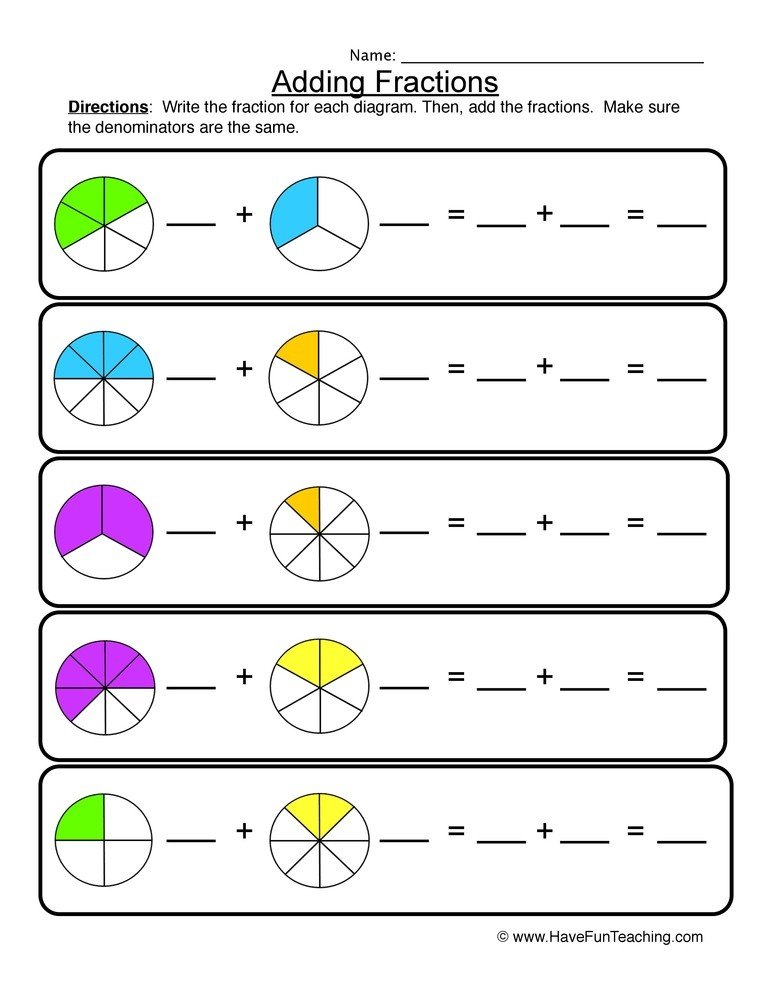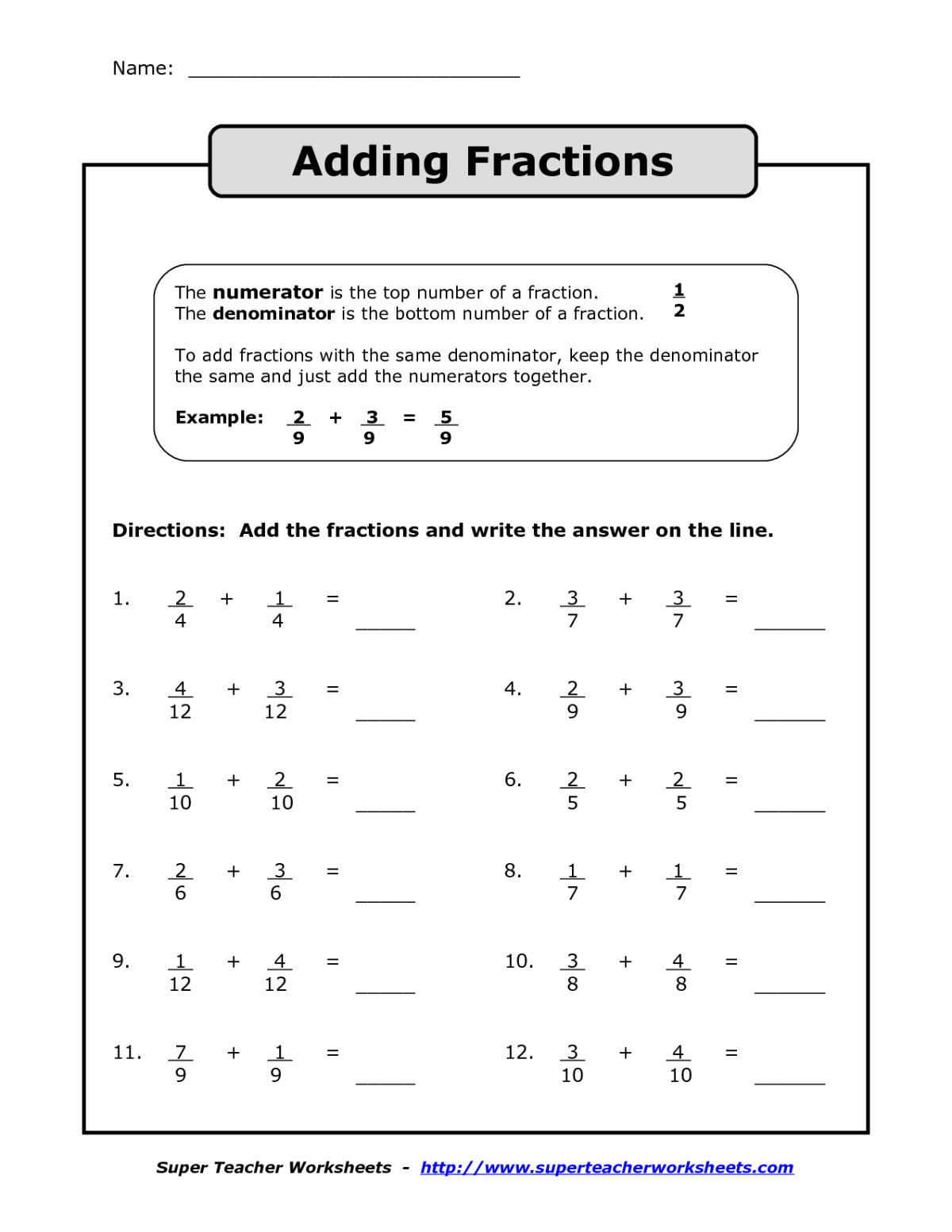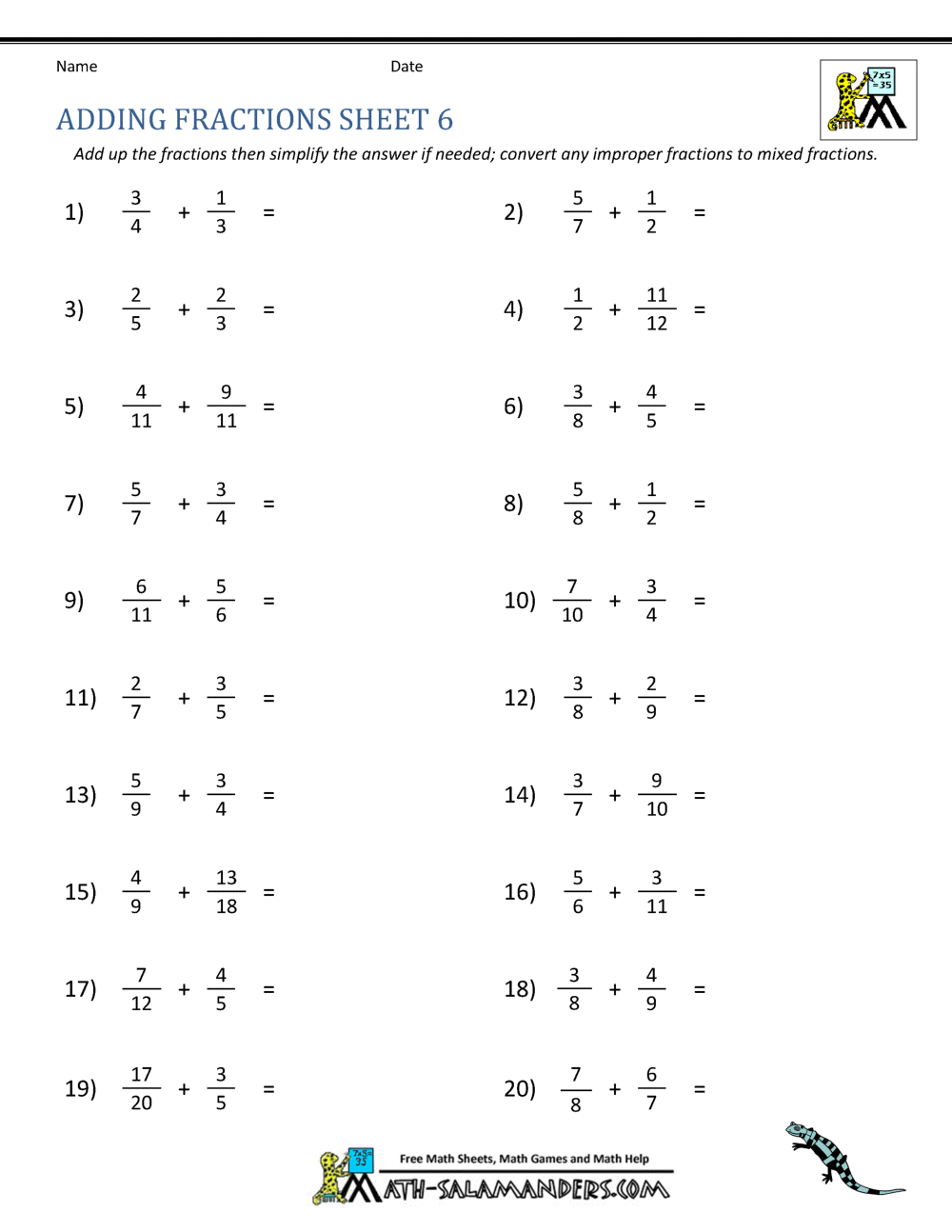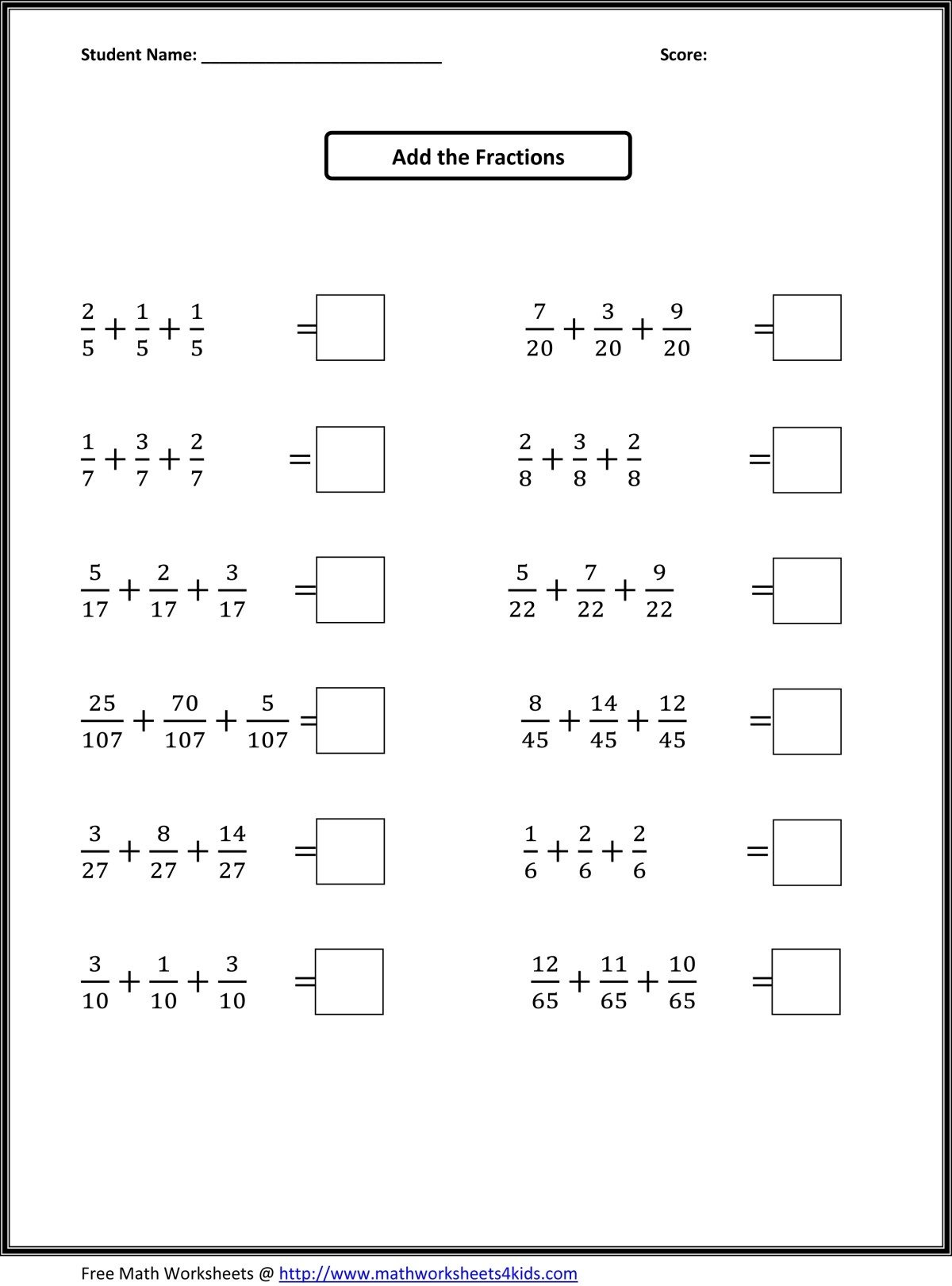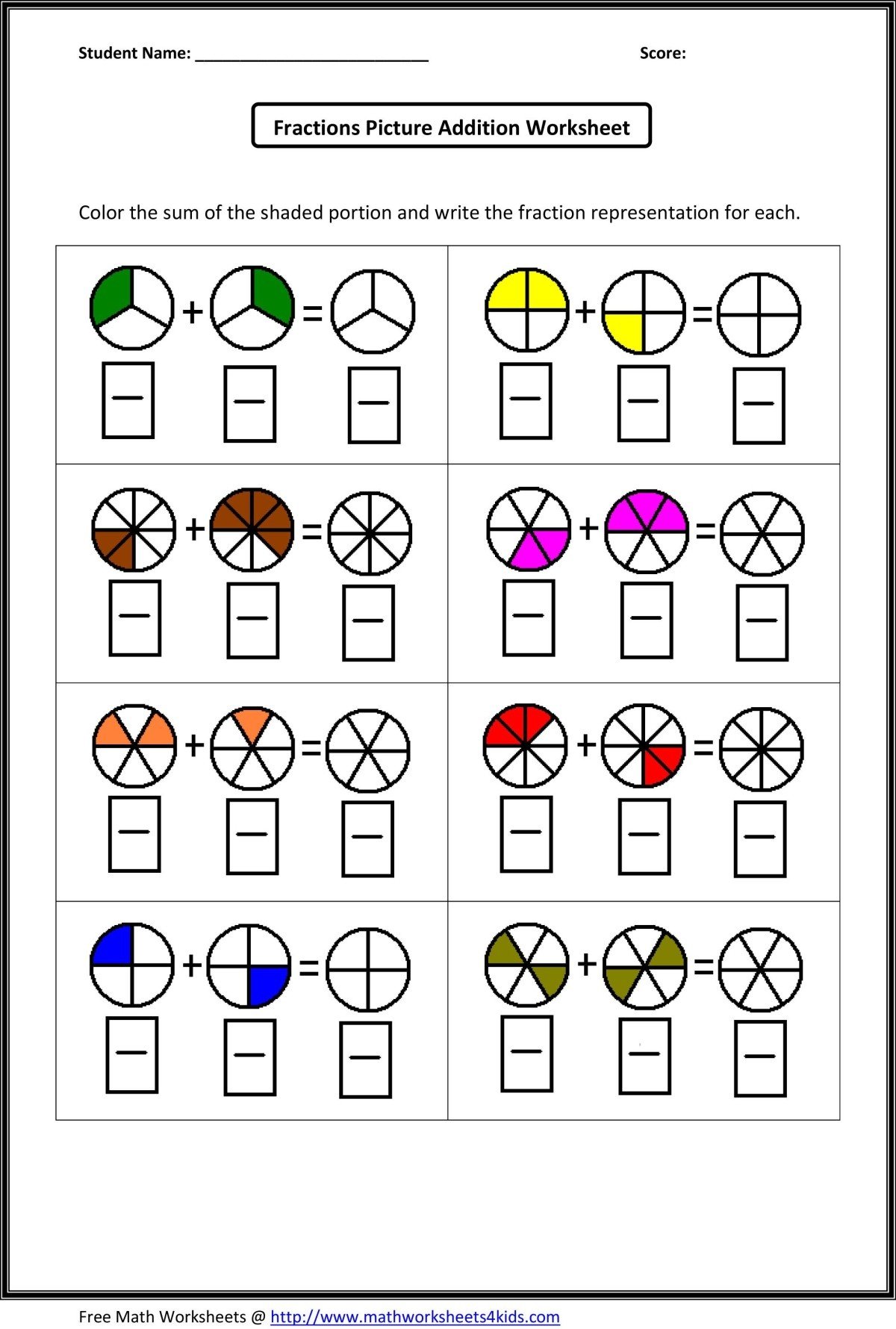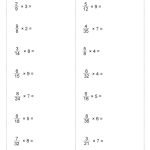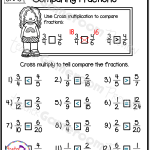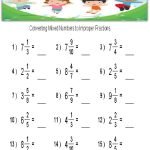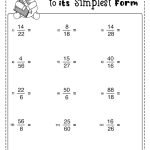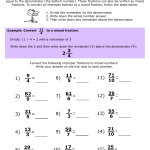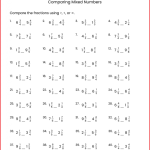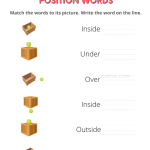Adding fractions can sometimes be a challenging concept for students to grasp. To help them practice and improve their skills, adding fractions worksheets are a valuable tool. These worksheets provide students with the opportunity to practice adding fractions in a structured and organized manner.
Table of Contents
Understanding Fractions
Before diving into adding fractions, it is important to have a clear understanding of what fractions are. Fractions represent a part of a whole or a quantity that is not a whole number. They consist of a numerator (the number on top) and a denominator (the number on the bottom). The numerator represents the number of parts we have, while the denominator represents the total number of equal parts that make up a whole.
Adding Fractions with the Same Denominator
When adding fractions with the same denominator, the process is quite straightforward. All you need to do is add the numerators together while keeping the denominator the same. For example, if we have 3/4 + 2/4, we simply add the numerators (3 + 2) to get 5, and the denominator remains the same (4). So, 3/4 + 2/4 = 5/4.
Adding Fractions with Different Denominators
Adding fractions with different denominators requires a few additional steps. First, you need to find a common denominator. This is the smallest multiple that both denominators can divide into evenly. Once you have the common denominator, you can convert each fraction so that they have the same denominator. To do this, multiply the numerator and denominator of each fraction by the same number. After converting the fractions, you can then add the numerators together while keeping the common denominator.
For example, let’s say we want to add 1/3 + 1/6. The common denominator is 6, so we need to convert both fractions to have a denominator of 6. To convert 1/3, we multiply the numerator and denominator by 2, resulting in 2/6. To convert 1/6, we multiply the numerator and denominator by 1, resulting in 1/6. Now that both fractions have a denominator of 6, we can add the numerators together to get 3/6.
Simplifying Fractions
After adding fractions, it is important to simplify the fraction if possible. Simplifying means reducing the fraction to its simplest form. To simplify a fraction, find the greatest common divisor (GCD) of the numerator and denominator, and divide both by that number. For example, if we have 4/8, the GCD of 4 and 8 is 4. By dividing both the numerator and denominator by 4, we get 1/2, which is the simplified form of the fraction.
Adding fractions worksheets provide students with the opportunity to practice and reinforce their understanding of adding fractions. By following the steps outlined above and practicing regularly, students can become more confident in their ability to add fractions accurately. Remember to always simplify fractions when possible, and continue practicing to improve your skills in adding fractions.
Adding Fractions Pictures Worksheet By Teach Simple
Adding Fractions Worksheets With Answer Key Worksheetocom
Adding Fractions Worksheets
Adding Fractions Equations Worksheet
Adding Fractions Worksheets With Answer Key
Addition Fraction Worksheet
Sample Adding Fractions Worksheet Templates
Addition Of Fractions Worksheets Grade 6
